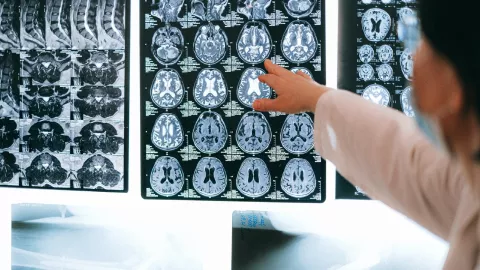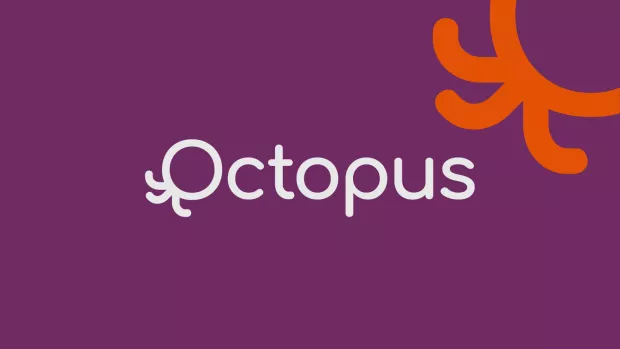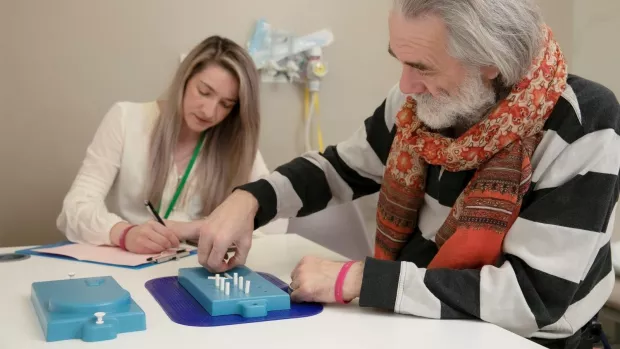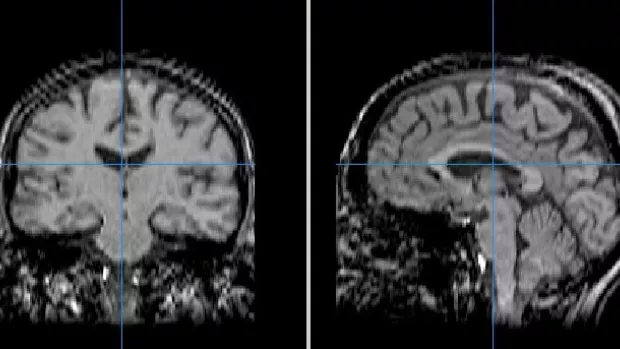
How MRI will help Octopus test treatments more quickly
Octopus is a first-of-its-kind clinical trial for progressive MS which will test potential treatments up to three times faster. But what has MRI (magnetic resonance imaging) got to do with it?
When you have progressive MS, your symptoms usually get worse gradually, over many years. We can track how quickly this is happening using tests like how quickly you can walk a certain distance or place pegs into small holes. But it can take a long time to see whether a potential treatment is slowing it down.
In clinical trials, this often means spending a long time testing a treatment that eventually turns out to be ineffective.
Octopus will do things differently. Part-way through the trial, the team will also use MRI to get a sneak preview of a treatment’s potential. This way they’ll know much earlier on whether a treatment looks promising.
How can MRI give us a sneak preview?
The researchers will use MRI to look for changes in the brain that can be early signs your MS is getting worse. There are a few things they will look out for, including brain atrophy (tissue loss) and the amount of myelin around the nerves.
These changes in the brain usually happen many months before you see signs of disability progression, like more difficulty walking. So, if a treatment slows down how fast changes in your brain are taking place, it’s a good indication the treatment may also have potential to slow down disability progression.
Not wasting resources on drugs that don’t look promising
If a treatment isn’t slowing down the changes in the brain any better than a placebo (dummy drug), the team will drop it from the trial. So we avoid wasting resources and time on a drug that is unlikely to ultimately be successful.
But just because one drug fails, it doesn’t mean Octopus will end. Instead, a different drug could take its place. Vital lab work is always ongoing to find new treatments with the potential to stop MS. Because of the way Octopus has been designed, the researchers will quickly be able to introduce an alternative.
Accelerating research into promising drugs
And that’s not the only way MRI makes Octopus so efficient.
Usually, it takes around 15 years to test a potential treatment in people. A drug goes through several separate trial phases to find out whether it’s safe and effective in increasingly large numbers of people.
Octopus will significantly shorten that timeline. If the results of the MRI sneak-preview look encouraging, the researchers will invite hundreds more people with MS to join the trial to see if the potential treatment slows disability progression. So, they will be seamlessly merging phase 2 and 3 trials together, instead of doing them separately.
There are many ways MRI can help us make our search for new treatments more efficient, so that we can stop MS sooner. We’re confident it’ll help Octopus set the course to revolutionise treatments for progressive MS.




